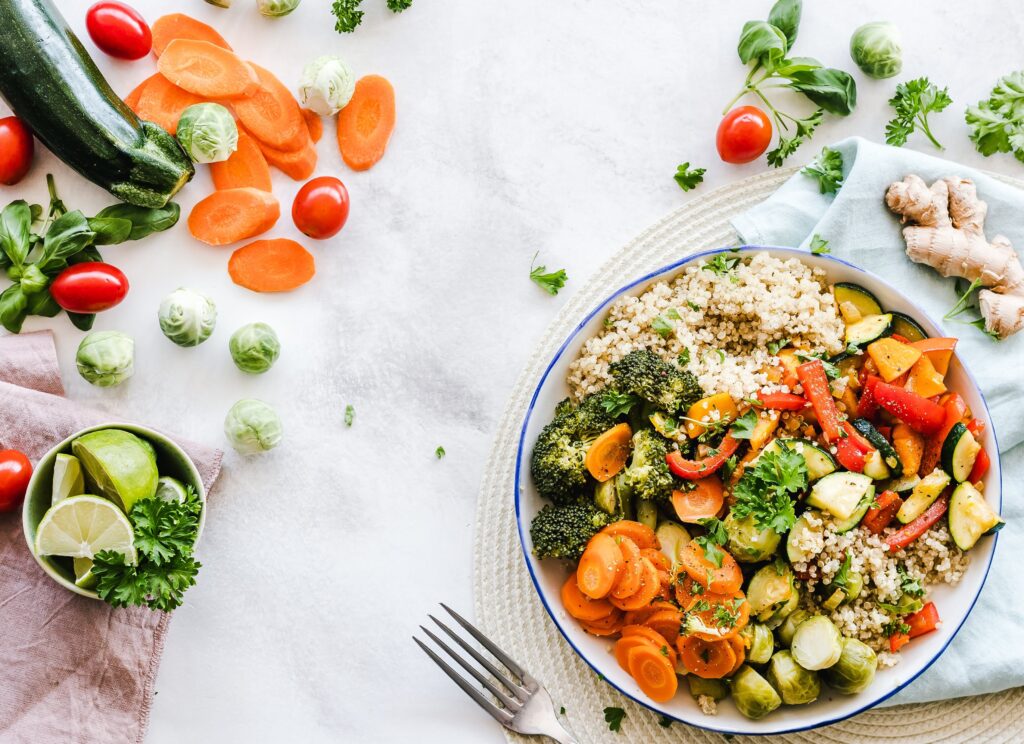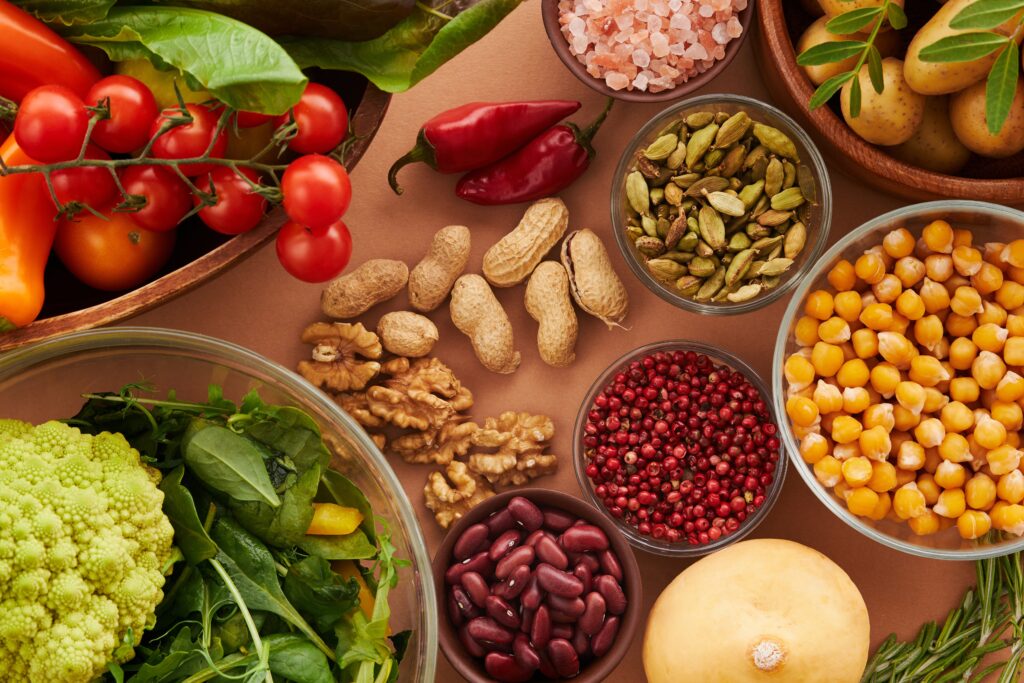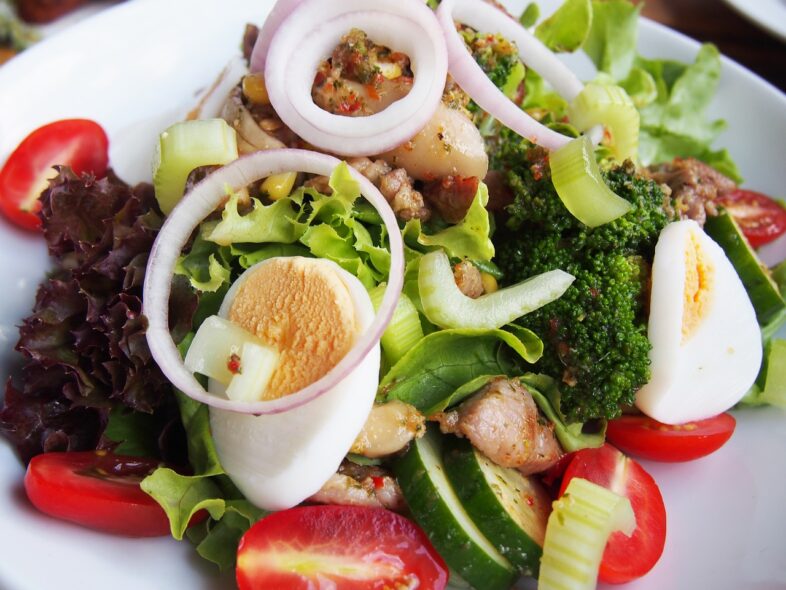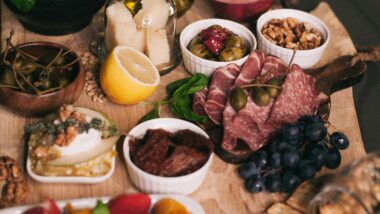Tips For Healthy Holiday Eating
When the holidays arrive, many people forget all about their diets and healthy eating. Weight gains of 7 – 10 pounds are common between Halloween and Christmas. To make the holidays easier, these tips will help you with healthy eating through the season and not gaining weight.
Most traditional foods can be made low fat. Turkey is very lean without the skin, and gravy can be made without any fat. Potatoes that are served without butter can be very healthy. The beloved pumpkin pie is nutritious, although it can be made into a fatty dessert with the addition of whipped cream.
Even though the holidays are in, don’t forget about the exercise. Keeping weight off during the holiday season is burning off the extra calories. You should plan a walk after meals, park farther from stores when you shop, and take a few walks around the mall before you begin shopping.
During holiday parties and at family dinners, feel free to sample foods although you shouldn’t splurge. Decide on what you plan to eat in advance, then stick to your plan. Eat plenty of vegetables, fruit, low-fat dressings, and slices of lean meats. Before you go to a party, eat a small snack to help curb your appetite.

If at all possible, avoid alcohol. Having too many drinks can cripple your will power, and also add excess calories to your diet. In the place of alcohol, drink water with lemon. Water can help to limit your appetite and keep you from binging. Also make sure to avoid eggnog, as each glass can have up to 300 calories.
Be flexible with your healthy holiday eating, as one bad meal won’t ruin your diet. Try to balance your calories over a few days and don’t just look at one meal or day.
The Healthiest Foods You Can Get
The following is a list of the healthiest foods that you can get. This will help you get an idea as to what foods are the best for your body.
Fruits
Apricots
Apricots contain Beta-carotene which helps to prevent radical damage and also helps to protect the eyes. A single apricot contains 17 calories, 0 fat, and one gram of fiber. You can eat them dried or soft.
Mango
A medium-sized mango packs 57 MG of vitamin C, which is nearly your entire daily dose. This antioxidant will help prevent arthritis and also boost your immune system.
Cantaloupe
Cantaloupes contain 117 GG of vitamin C, which is almost twice the recommended dose. Half a melon contains 853 MG of potassium, which is nearly twice as much as a banana, which helps to lower blood pressure. Half a melon contains 97 calories, 1 gram of fat, and 2 grams of fiber.
Tomato
A tomato can help cut the risk of bladder, stomach, and colon cancers in half if you eat one daily. A tomato contains 26 calories, 0 fat, and only 1 gram of fiber.

Vegetables
Onions
An onion can help to protect against cancer. A cup of onions offers 61 calories, 0 fat, and 3 grams of fiber.
Broccoli
Broccoli can help protect against breast cancer, and it also contains a lot of vitamin C and beta-carotene. One cup of chopped broccoli contains 25 calories, 0 fat, and 3 grams of fiber.
Spinach
Spinach contains carotenoids that can help fend off macular degeneration, which is a major cause of blindness in older people. One cup contains 7 calories, 0 fat, and 1 gram of fiber.
Grains, Beans, and Nuts
Peanuts
Peanuts and other nuts can lower your risk of heart disease by 20 percent. One ounce contains 166 calories, 14 grams of fat, and over 2 grams of fiber.
Pinto Beans
A half cut of pinto beans offers more than 25 percent of your daily folate requirement, which protects you against heart disease. Half a cup contains 103 calories, 1 gram of fat, and 6 grams of fiber.
Skim Milk
Skim milk offers vitamin B2, which is important for good vision and along with Vitamin A could improve allergies. You also get calcium and vitamin D as well. One cup contains 86 calories, 0 fat, and 0 fiber.
Seafood
Salmon
All cold water fish such as salmon, mackerel, and tuna are excellent sources of omega-3 fatty acids, which help to reduce the risk of cardiac disease. A 3 ounce portion of salmon contains 127 calories, 4 grams of fat, and 0 fiber.
Crab
Crab is a great source of vitamin B12 and immunity-boosting zinc. A 3 ounce serving of crab offers 84 calories, 1 gram of fat, and 0 fiber.


